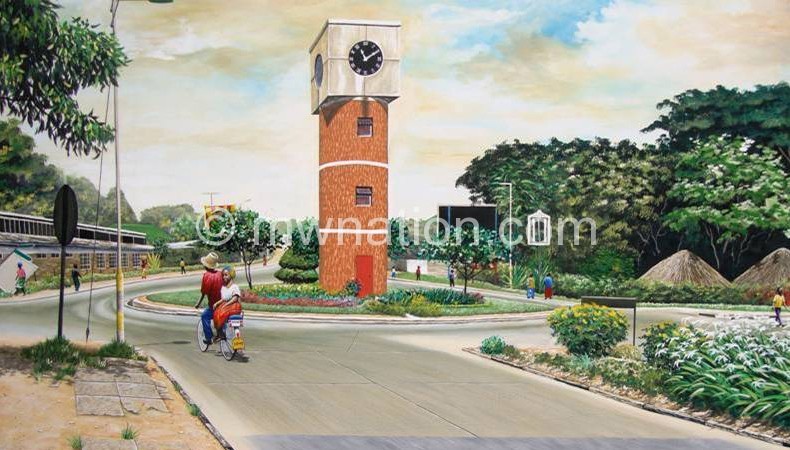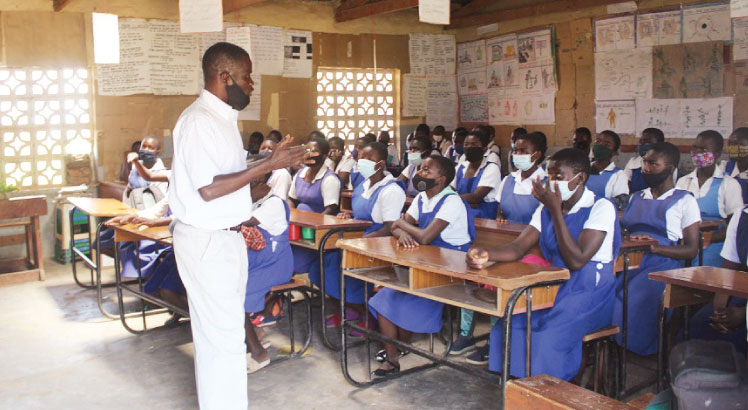Mzuzu: Towards more revenue for better facilities
Mzuzu, the country’s third largest town, is often marketed as ‘the ever-green city’. But the tribute to the city’s massive forests might as well be a reminder to the residents that there is still more room to grow with it.
On Monday last week, Mzuzu was a city of darkness with unlit roads. The streetlights had entered week two without power, a dark side the city’s acting chief executive officer Victor Masina blames on increasing vandalism of cables and non-payment of city rates.

“The residents are also to blame,” says Masina. “We will continue having dark streets unless people start paying city rates and stop vandalism.”
The following day, the critical wants of her 200 000 residents and nearly 20 000 commuters came to light. The majority of them are sick and tired of poor roads paved with stinking spills and heaps of garbage, as random interviews at the main market indicated.
“We have been crying for better roads and sanitation facilities since the end of [founding president Hastings Kamuzu] Banda’s strict rule in 1994. Ever since, the city’s roads are getting worse, with potholes and mounds of litter everywhere you go,” said one of the interviewees at the main market.
 What will motivate the residents to pay city rates and other property fees if the council cannot provide basic necessities? This question sparks a cyclic blame game—an egg-chicken debate which compels council officials to hit back with a well, nearly clichéd tagline: “Pay your city rates and the city will offer what you deserve.”
What will motivate the residents to pay city rates and other property fees if the council cannot provide basic necessities? This question sparks a cyclic blame game—an egg-chicken debate which compels council officials to hit back with a well, nearly clichéd tagline: “Pay your city rates and the city will offer what you deserve.”
Following decades of futility and accusation, Mzuzu is piloting a nearly K100 million mapping exercise to help the country’s cities ensure its citizens pay taxes while cementing their power to demand development and hold councils accountable all the time.
The city’s revenue support manager Morris Chikosa prefers calling the GIZ-funded $200 000 revenue mobilisation programme “Remop”. Similar projects are happening in Ghana, Seirra Leone, Kenya and Ethiopia.
Since September 2013, 20 data collectors in Mzuzu have been to every location, inspecting all buildings and putting names and numbers to them. Their legwork has been a voyage of discovery marked with dead-ends, dirty tracks, nameless streets and numberless houses before they came across the property they wanted—more by lack than map careful reading.
“We have captured 40 000 properties so far and we are earmarking 3 000 more,” says Chikosa when asked about the project which is uniquely identifying buildings and providing the local government authority a full record of developments in the city.
 In his arithmetic, the population in focus will see the city collecting about K410 million in terms of property taxes and business fees.
In his arithmetic, the population in focus will see the city collecting about K410 million in terms of property taxes and business fees.
“This will also help the city council provide services that have been lacking for years. Presently, the council is trying hard, but the city is starving from revenue for good roads and rubbish collection,” he states.
The registration numbers have been spotted on all ends of the city, including Geisha—a low-income township where the city council denies its inhabitants access to water and electricity on accusations that they have encroached a stretch earmarked for better development by the Ministry of Lands.
When they see the writing on the wall and get bills for land rentals, the underserved citizens think it is a sign that their occupancy is not illegal after all.
But it is in no way a permit for incorrect land use or an apparatus for council officials to enrich themselves, says Chikosa. To him, it is about ensuring the council has the money it requires to deliver quality services the citizens need.
The brains behind Remop, in consultation with German surveyor Paul Fish, are using Global Positioning System (GPS) technology to distinguish every building, measure its worth and put it on the city’s satellite map.
At their base near Mzuzu Stadium, Chikosa, Fish and their team are full of activity, reading the maps and giving each building value.
“The system is automated and fair,” says Fish. “A big house in a posh location will obviously cost more than a small thatched house in a slum with no electricity, water supply, tarred roads and landscapes.”
Here, the size of the city rates vary according to the location, its population density, the size of the house, what it is made of, access to basic needs and other details .
Looking back, before Remop, Mzuzu City Council was not earning enough for workers’ salaries, settle water bills, buy electricity tokens and keep its area clean.
The expatriate says: “If we get the K410 million, it will be a big boost for the city. But we are expecting to get K220 000 this year since the system is still new.”
The automated system tracks defaulters, compiling lists that will enable the council to recover its outstanding revenue in partnership with lawyers.
The maps derived from it constitute a first step towards assigning street codes to locations which have been anonymous and indescribable since the hub of the Northern Region became a city in 1985.
“In the absence of street codes, the numbers can help strangers identify any house they come across. However, we have asked all councillors and block leaders to ensure all streets in their localities are named,” says Fish.
However, the main job lies ahead. Payment of taxes is a duty, but people do not seem to understand why they should pay city rates.
Last year, the brains behind Remop met with investors, residents and other interested groups to sensitise them on the new system. But the backlash could be reflective of graver resistance.
Some say it is illegal and inconsiderate for the city to raise its rates two times in less than five years. Others feel its just another way to enrich council officials who seldom account for the funds collected.
There were also voices agitating for uniform rates regardless of the size, location and condition of the buildings.
Fish and Chikosa says the reaction is unsurprising and they have since embarked on a mass awareness campaign to iron out resistance and misconceptions facing the new system.
“Citizens have a duty to pay taxes. If they do so, we expect them to start engaging the city council for vital services. They can start complaining loudly and persistently about good roads, street lights and garbage collection. In the end this will bring more civil society action and things can only get better,” says Fish.
In the city strategy, the council envisions Mzuzu becoming a vibrant city for all to live, work, play and invest.
Looking forward, Fish says: “In five years time, I see the city having enough money for better infrastructure: graded roads with good drainage, reliable rubbish collection and street lighting. Most importantly, I see the citizens who are fully engaged in city affairs.”






I expect that the first hundred million kwacha will be squandered on a top-of-the-line Prado for the Mayor, and a (little) Mercedes for the Deputy.